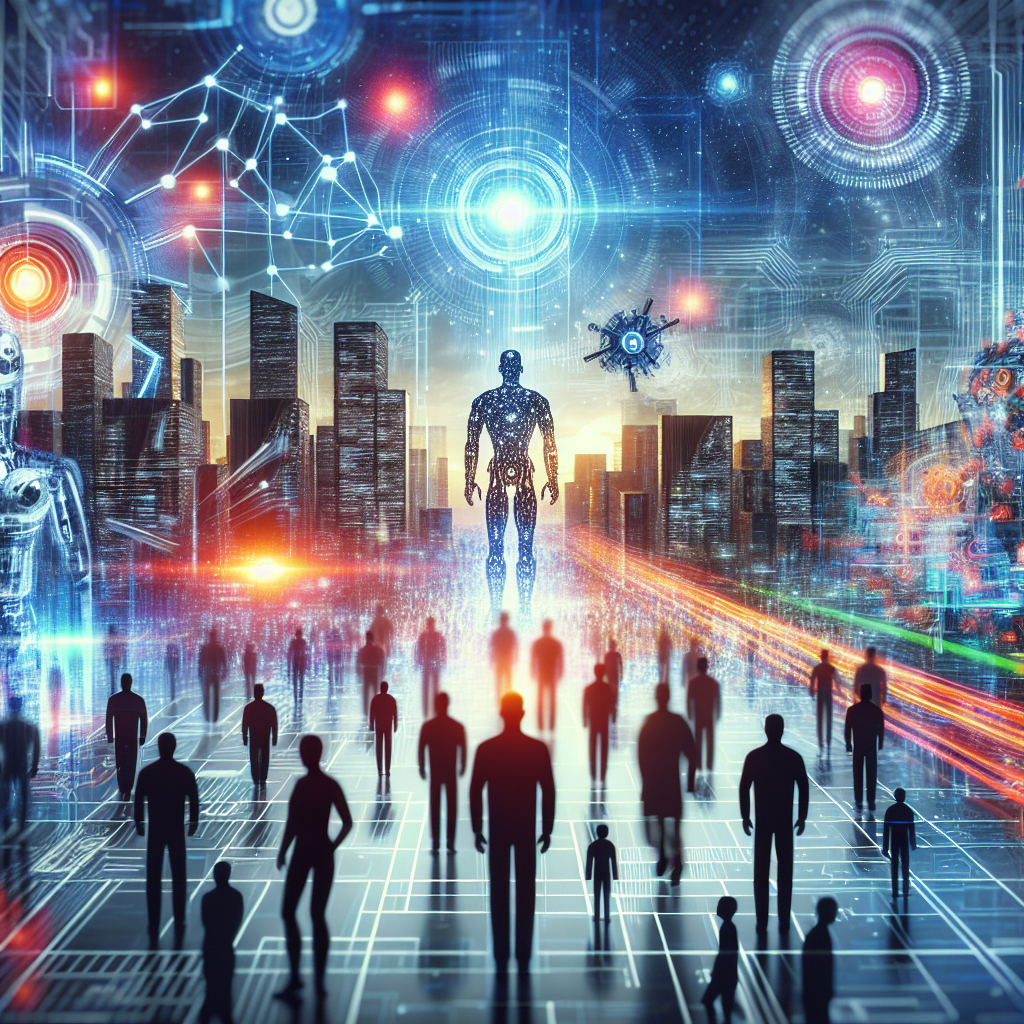Artificial General Intelligence (AGI) is the next frontier in the field of artificial intelligence (AI). Unlike narrow AI, which is designed to perform specific tasks, AGI aims to replicate human-level intelligence across a wide range of cognitive abilities. The potential impact of AGI on the future of work is profound, as it has the potential to automate a wide range of tasks currently performed by humans. In this article, we will explore how AGI is likely to shape the job market in the coming years and what this means for workers and businesses alike.
The Rise of AGI and Automation
The development of AGI is still in its early stages, but rapid progress is being made in the field of AI. Researchers are working on creating systems that can learn and adapt to new tasks, just like humans do. Once AGI is achieved, it has the potential to revolutionize industries across the board, from healthcare and finance to transportation and manufacturing.
One of the most significant impacts of AGI will be on the job market. Automation has already transformed many industries, with robots and AI systems taking over repetitive tasks that were previously performed by humans. With AGI, the scope of automation is likely to expand even further, as machines become capable of performing more complex cognitive tasks.
How Automation Will Shape the Job Market
The impact of automation on the job market is a topic of much debate among economists and policymakers. While some believe that automation will lead to widespread job loss and unemployment, others argue that new jobs will be created to replace those that are automated. The truth is likely somewhere in between – automation will certainly lead to job displacement in some industries, but it will also create new opportunities in others.
One of the key ways in which automation is likely to shape the job market is by changing the skills that are in demand. As machines take over routine tasks, the value of skills such as creativity, problem-solving, and emotional intelligence will increase. Workers who possess these skills will be in high demand, while those who rely on repetitive tasks may find themselves out of work.
Another way in which automation will shape the job market is by increasing the need for workers who can work alongside AI systems. While machines can perform many tasks more efficiently than humans, there are still many tasks that require human judgment and decision-making. Workers who can collaborate with AI systems and use them to enhance their own capabilities will be well-positioned in the future job market.
The Future of Work in an AGI World
As AGI becomes a reality, the nature of work is likely to undergo significant changes. Some jobs will be automated entirely, while others will be augmented by AI systems. Workers who can adapt to these changes and acquire new skills will be able to thrive in the new economy, while those who resist change may find themselves left behind.
One of the key challenges facing workers in an AGI world is the need for lifelong learning. As technology evolves at an ever-increasing pace, workers will need to continuously update their skills to remain relevant in the job market. This will require a shift in mindset, with workers embracing a culture of continuous learning and adaptation.
Another challenge facing workers in an AGI world is the need for greater collaboration between humans and machines. While AI systems can perform many tasks more efficiently than humans, they still lack the ability to understand context, make complex decisions, and interact with humans in a natural way. Workers who can collaborate effectively with AI systems will be able to leverage the power of automation to enhance their own capabilities.
FAQs
Q: Will automation lead to widespread job loss?
A: While automation is likely to displace some jobs, it will also create new opportunities in other industries. Workers who can adapt to the changing job market and acquire new skills will be well-positioned for success.
Q: What skills will be in demand in an AGI world?
A: Skills such as creativity, problem-solving, emotional intelligence, and the ability to collaborate with AI systems will be in high demand in an AGI world. Workers who possess these skills will be able to thrive in the new economy.
Q: How can workers prepare for the future of work in an AGI world?
A: Workers can prepare for the future of work by embracing a culture of lifelong learning, acquiring new skills, and collaborating effectively with AI systems. By staying adaptable and open to change, workers can position themselves for success in an increasingly automated world.
In conclusion, AGI has the potential to revolutionize the job market, automating many tasks that are currently performed by humans. While this will lead to job displacement in some industries, it will also create new opportunities in others. Workers who can adapt to the changing job market, acquire new skills, and collaborate effectively with AI systems will be well-positioned for success in the future of work.

